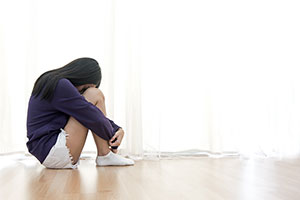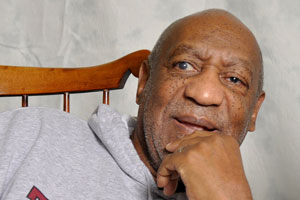The Iowa Court of Appeals recently held that a criminal defense attorney failed to represent his client effectively when he made no objection to an expert’s improper vouching for the credibility of a witness. The issue in Simpson v. State is one that arises frequently when experts testify for the prosecution in cases that allege the sexual assault of a child.
Expert’s Role
Experts for both sides can play important roles in a child sexual assault prosecution. In addition to medical and forensic experts who can help the jury understand physical evidence, experts often testify about the behavior of children. Depending on the facts of the case, a prosecution expert might testify about the reasons why some child victims delay reporting an assault, while a defense expert might testify about the reasons why some children make false reports.
When used by prosecutors, the expert testimony of a psychologist or social worker risks violating a defendant’s right to a fair trial if the expert does not stay within accepted testimonial boundaries that have been established by court decisions. When experts stray outside of those boundaries, the right to the effective assistance of defense counsel may be violated when the defense attorney fails to object to the improper expert testimony.
Some commentators suggest that it is unethical for an expert to suggest to a jury that a child witness is truthful because the training that experts receive makes them no more adept at detecting lies than anyone else. In addition, an expert should help the jury understand the evidence, but should not be an advocate for a particular side in a trial. Several convictions have recently been reversed because prosecution experts crossed the line between neutrality and advocacy.
Statistics
In the Simpson case, the prosecution called Lana Herteen as an expert in “child sexual abuse dynamics.” Herteen testified about statistics suggesting that 86{d61575bddc780c1d4ab39ab904bf25755f3b8d1434703a303cf443ba00f43fa4} of adolescents who have been sexually assaulted do not report the assault right away, if ever. Those statistics are suspect (they assume that all the adolescents within that 86{d61575bddc780c1d4ab39ab904bf25755f3b8d1434703a303cf443ba00f43fa4} actually were sexually assaulted), but most courts allow expert testimony of that nature, subject to cross-examination and the testimony of rebuttal experts.
While noting that statistics about the percentage of alleged sexual assault victims who are telling the truth are not admissible, the court accepted that experts may generally testify about statistics concerning delayed reporting. The court noted, however, that those statistics cannot be viewed in a vacuum, and were part of the problematic nature of Herteen’s testimony.
Grooming
Herteen described “grooming” behavior (the process of earning a child’s trust so that the child will later submit to sexual contact). She also testified about the sexualization of victims (by, for example, exposing them to pornography in order to make them comfortable with sexual discussions or activity).
Herteen crossed the line, according to the court, when her testimony moved from a generalized discussion of behaviors sometimes relied upon by abusers to the specific facts that the prosecution alleged to be true. An expert can say “here is how some abusers groom children,” but cannot say “here is now the defendant groomed this victim.”
The prosecutor elicited improper testimony by asking a series of hypothetical questions that referred to the specific facts of the case. By asking “would it be grooming if an abuser did X, Y, and Z?” after placing into evidence that the defendant had done X, Y, and Z, the prosecutor personalized Herteen’s testimony by making it clear that Herteen believed the defendant had groomed the alleged victim. That was for the jury, not Herteen, to decide.
In addition, “would it be grooming?” depends on the state of mind of the person engaging in the behavior. Expert witnesses cannot read minds and should not comment upon a defendant’s intent in committing specific acts. No amount of expertise entitles a witness to testify about what was in another person’s mind.
Vouching
While most courts allow expert testimony about certain characteristics that have been repeatedly observed in child sexual assault victims, courts generally do not allow mental health experts to offer an opinion as to whether a particular child was abused. Nor do courts generally allow experts to express an opinion about whether a child is telling the truth. Courts usually agree that those issues are for the jury to decide, and that jurors may place too much value on the testimony of experts who are in no better position that the jury to decide whether a child’s report of a sexual assault was truthful.
In the Iowa case, Herteen testified about research that purports to show that teens who tell different versions of stories about being sexually assaulted will always maintain a “core of truth,” which she described as “the essence of the information” the teen is offering. In other words, if a teen consistently says “I was sexually assaulted” but repeatedly changes the details of the assault, the assertion that “I was sexually assaulted” should be regarded as the core fact that is truthful. That assumption has gained currency among prosecution experts despite the lack of any rigorous scientific evidence that the assumption is true.
Herteen also suggested that when child sexual assault victims are “coached” by their abusers, the story they were “coached” to say will eventually “fall apart,” revealing the “core truth” of the assault.
The court had little trouble concluding that Herteen’s testimony about “core truths” amounted to vouching for the credibility of the alleged victim. The court pointed to a long line of cases holding that it is improper for experts to make statements like “children don’t lie about important things,” not only because the testimony is demonstrably false, but because it is up to the jury, not the expert, to decide whether a child is telling the truth about being sexually assaulted.
The court also concluded that Herteen’s testimony about “coaching” the victim was a transparent attempt to bolster the alleged victim’s testimony by suggesting that children are incapable of lying over an extended period of time. Again, apart from the fact that kids are quite capable of maintaining a lie for years, it was improper for Herteen to suggest to the jury that the alleged victim’s story must be truthful because she would not otherwise have been able to continue telling it.
Conviction Reversed
The defense attorney failed to object to the improper testimony. The court of appeals concluded that that failure was inconsistent with the duty to represent a criminal defendant effectively. The court therefore reversed the conviction and ordered a new trial.
The lesson in this case for criminal defense attorneys is that they need to object when a prosecution expert crosses the line and becomes an advocate for the prosecution rather than an impartial expert. The lesson for experts is that they should not allow themselves to be led by prosecutors into overstepping that boundary.





